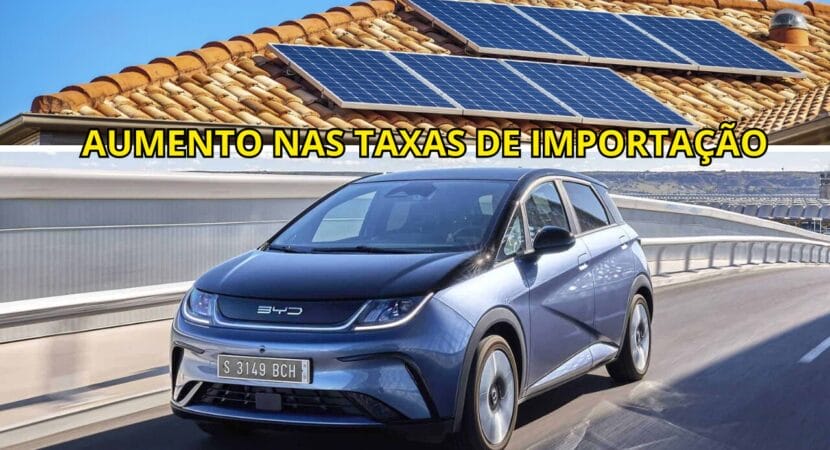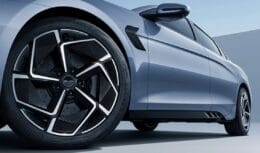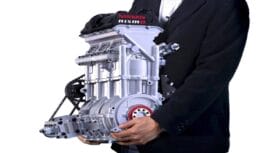
The Federal Government began gradual taxation on electric vehicles, hybrids and solar panels to finance tax incentives in the automotive industry. The rates, which have been zeroed since 2015, will be reintroduced by July 2026. This strategy aims to boost local production, reduce dependence on imports and promote the transition to renewable energy.
The Federal Government has begun implementing a series of measures that will directly impact the electric, hybrid and solar energy vehicle sector. Taxation, which was previously zero for eletric cars since 2015, it will now be gradually reintroduced until July 2026, also covering solar panels and changes to tariffs for wind turbine generators. The declared objective is to finance tax incentives for the automotive industry, promoting national production and reducing dependence on imports, mainly from China.
See: Federal Government begins taxing imported electric and hybrid vehicles
Taxation on electric and hybrid vehicles
The rates for electric vehicles, previously zero, began to be applied since the beginning of this year, marking a significant change in the country's tax policy.
This measure, according to the government, aims to finance MP 1.205 of 2023, which provides R$19 billion in tax incentives for the automotive industry.
Since 2015, the rates for electric vehicles were zero, with the aim of encouraging the entry of these vehicles into the Brazilian market.
However, the current administration aims to boost the competitiveness of local factories, gradually resuming import duties.
Taxation in the national market will be implemented progressively, starting at 10% for 100% electric cars and reaching 35% in July 2026.
Hybrids will pay 15%, while plug-in hybrids will have a rate of 12%. Electric trucks, in turn, will be taxed at 20%, reaching 35% in July 2024.
This gradual approach adopted by the Government allows local automakers to develop electrified vehicle projects, while imports are still encouraged.
Companies will have until July 2026 to continue importing exempt up to certain value quotas, established by model.
Incentives for local production of electric vehicles
The measure includes the stipulation of import quotas at a reduced rate to encourage imports until the taxes are fully implemented.
For example, for hybrids, the quotas will be US$130 million until July 2024, US$97 million until July 2025 and US$43 million until July 2026.
This strategy aims to provide space for local production to meet the growing demand for electric vehicles in the Brazilian market.
Taxation on solar panels and wind turbines
In addition to electric vehicles, the government is also implementing taxation on solar panels.
The Mercosur Common External Tariff (TEC) on the import of modules will be 10,8%, with an expected increase in 2025.
The intention is to benefit national production and attract investment, reducing dependence on imports, mainly from China.
To facilitate the transition, import quotas were established at 0% in decreasing values until 2027.
These quotas range from US$1,13 billion between January and June 2024, gradually decreasing to US$403 million between July 2026 and June 2027.
This measure aims to provide the renewable energy market with sufficient time to adjust to changes and encourage the development of national technologies.
Changes to wind turbines
The changes also extend to wind turbine wind turbines, with an increase in the power limit for tariff exemption.
Until the end of 2023, wind turbines with a power above 3.300 kVA could be purchased abroad without import tariffs.
However, from now on, only equipment with a power greater than 7.500 kVA will continue to be exempt, and only for one year.
From 2025, all purchases abroad will have a tax of 11,2%, encouraging local production in the renewable energy sector.
Government economic strategy
These new taxation measures by the Federal Government signal a change in economic strategy, prioritizing local production and reducing dependence on imports in sectors crucial to industrial development.
The transition to electric vehicles, solar energy generation and the production of wind turbines are key parts in the search for a more sustainable and self-sufficient economy.
In a global scenario of energy transition, Brazil seeks to position itself as an important player in the production and innovation of these technologies.
It remains to be closely monitored how the electric vehicle and renewable energy industries will adapt to these changes, as the country seeks a balance between promoting local production and maintaining its international competitiveness.








